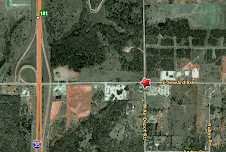 |
| SHELBY THE WARRIOR |
After receiving a substantial inheritance at the age of 21, Shelby moved to Waverly, MO. With his step-brother, Henry Howard Gratz, he started the Waverly Steam Rope Company, making rope from hemp. He owned a 700 acre plantation and also owned steamboats on the Missouri River. One of the largest slave-holders in the state, during the "Bleeding Kansas" free-state/slave-state struggle, he led a company of pro-slavery raiders across the border into abolitionist Kansas in cross-border raids in the late 1850s.
July 22, 1858, he married a distant cousin; they had 7 children. By 1860, due to his own poor management, Shelby was in financial decline and he was forced to sell the rope company, plantation, and his slaves.
Like many pro-Southern Missourians, the Camp Jackson Affair in St. Louis, May 10, 1861, when Union forces captured a unit of secessionists at Camp Jackson, angered Shelby. Union General Nathaniel Lyon’s militia fired upon a civilian mob and killed 28 people.
Frank Blair, a Kentucky cousin (and brother of Lincoln’s Postmaster General, Montgomery Blair) was stationed in St. Louis. Blair offered Shelby a Union commission when the War started but Shelby refused the offer.
 |
| SHELBY MEMORIAL PARK, WAVERLY MO |
In 1861, at the Methodist Church near his plantation, Shelby recruited hundreds of men to the Confederate cause in a matter of hours. He outfitted them with his own money and offered them to the service of Missouri’s pro-secessionist governor, Claiborne F. Jackson. These men became the core of his Iron Brigade named for their toughness.
Shelby saw action at Carthage and Wilson’s Creek, MO, in 1861 before going to northwest Arkansas with Sterling Price’s Missouri State Guard, Feb 1862. As part of the Confederate Army of the West, his company saw action at the Battle of Pea Ridge. He led his cavalry east of the Mississippi River with the rest of the Confederate army in April 1862, but soon returned west. He was recognized for his leadership skills and talent, and promoted to Colonel, Oct 27, 1862, and given command of the “Iron Brigade.” He commanded this brigade at Prairie Grove Arkansas and throughout the Trans-Mississippi campaign.
In 1863, he was promoted to brigadier general and continued to lead his men against Union forces until the end of the war.
Shelby served with distinction during the war, but when it came to an end, he and several hundred members of the Iron Brigade were not ready to surrender. Shelby led 600 of his men to Mexico where Emperor Maximilian granted them permission to start a colony near Vera Crduz, called “Carlota”. For their refusal to surrender, they were called "the undefeated.” This became the title of a 1969 John Wayne movie loosely based on Shelby’s actions.
Two years later, Emperor Maximilian was overthrown and Shelby returned to the United States. Union soldiers had burned down the Shelby home and all outbuildings, so, in 1867, when Shelby and his family returned to Missouri, they began farming in Adrian, MO.
 |
| SHELBY THE MARSHAL |
He voiced regret for his actions in the Border Wars, telling historian William Elsey Connelley, “I was in Kansas at the head of an armed force. I was there to kill Free-state men. I did kill them. I am now ashamed of myself for having done so. I had no business there. No Missourian had any business there with arms in his hands.”
Before he became a Marshall, Shelby was believed to have played a role in the acquittal of outlaw Frank James. In 1883, Shelby testified in court as a character witness for Frank James. He had known James during his days as a Civil War guerilla. Shelby encouraged the jurors to see Frank James as a defender of the South against corrupt big businesses from the North. When asked to identify Frank in the courtroom, Shelby exclaimed: “Where is my old friend and comrade in arms? Ah, there I see him! Allow me, I wish to shake hands with my fellow soldier who fought by my side for Southern rights!”
Shelby died of pneumonia on his farm near Adrian, MO, on Feb 13, 1897, and was buried in Kansas City, Missouri.
Shelby led his Iron Brigade of the Missouri volunteers on what was to be the longest cavalry raid of the war at that time, Shelby's Great Raid. Between Sep 22 and Nov 3, 1863, Shelby's brigade traveled 1,500 miles through Missouri, inflicting over 1,000 casualties on Union forces, and capturing or destroying an estimated $2 million worth of Federal supplies and property. He was promoted to brigadier general on Dec 15, 1863, at the successful conclusion of his raid.
 |
| SHELBY MEMORIAL, WAVERLY, MO |
Jo Shelby was one of the most interesting characters of the Civil War. An untrained officer, he rose to be regarded as one of the best cavalry commanders of the war. His legend still lives in the John Wayne movie, "The Undefeated." He was remembered for many years by the men who served with him:
Ho Boys! Make a Noise!
The Yankees are afraid!
The river's up, hell's to pay—
Shelby's on a Raid!
Shelby became a folk hero to the people of the devastated Southland, and is still considered one of the greatest Confederate Cavalry leaders. General JEB Stuart, would later remark, "Shelby was the best cavalry general of the South. Under other conditions, he would have been one of the best in the world"















No comments:
Post a Comment